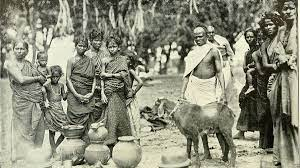
Blog
The Best Source to Enhance Your Sociology Optional Content



September 22, 2023
Context: Article talks about the marginalization faced by de-notified tribes in India
Source: https://www.counterview.net/2023/07/liberated-70-yrs-ago-former-criminal.html
Syllabus Mapping: Tribal communities in India, Tribal issues, colonialism
Summary of the article
During British colonial rule in India, around 200 tribal communities were labeled as “criminal tribes” under the Criminal Tribes Act of 1871. They faced systemic discrimination and were stigmatized, resulting in social and economic marginalization. India repealed the law in 1949, but it was only on August 31, 1952, that the communities were “de-notified.” Despite this, nomadic and de-notified tribes (NTDNT) still face marginalization, bias, and ill-treatment by law enforcement, leading to limited access to rights, education, and healthcare.
Modern technology and commercialization have eroded their traditional skills and livelihoods, forcing many to lead nomadic lives. When they settle down, their unauthorized settlements lack basic facilities and infrastructure. As a result, they are denied access to government welfare programs and face political underrepresentation.
To address these issues, ActionAid Association (AAA) collaborates with NTDNT associations to strengthen their movements, build leadership capacity, and raise awareness. In Rajasthan, AAA works with the Ghumantu Sajha Manch (GSM) to mobilize communities, facilitate social security links, secure land and housing rights, and combat stigma and harassment. Such efforts have resulted in positive outcomes, with the government establishing welfare boards and allocating budgetary provisions for upliftment.
However, community and civil society efforts alone are insufficient. The central and state governments must prioritize and act to uplift these communities. A systematic enumeration process, expert committees for revising lists, and the establishment of NT-DNT State Commissions and Welfare Boards are crucial steps. Adequate funding for education, healthcare, and housing schemes tailored to their cultural needs is essential. Land titles for DNTs, registration processes for social security schemes, and facilitation of identity documents are also necessary.